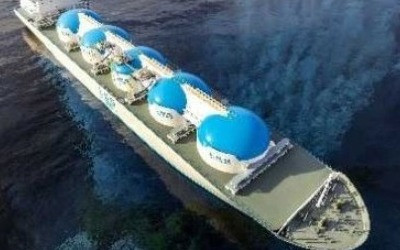September 29, 2020

As the global oil, gas and energy industry continues to rebound and stabilise, and borders begin to open up again, we’re seeing more jobs coming on to the market.
And while the industry may be more project and commercially driven than in the past, there remain plenty of lucrative opportunities for skilled energy professionals in all sectors, with businesses still open to upskilling their expertise.
As Deloitte notes, industry challenges in the form of political turbulence, weakening economic growth and trade tensions are continuing to upset the market. Businesses will be paying close attention to these disruptive forces and ensuring they are equipped with the right level of talent to navigate these trying times. This may mean restructuring and change, which in turn opens the door to opportunity.
So how can energy professionals make themselves heard in this noisy marketplace? And what can they do to secure the best role possible, whether it be a technical engineering role within a specific Energy sector or a corporate role?
Here’s how to structure your CV to get noticed.
1. Lead with your technical skills, achievements and experience
Qualifications, hands-on experience and certifications are all still highly desired within the Energy industry. Use a technical CV format to highlight these, placing your key skills at the very top of the document.
These might include offshore substation experience, field operations experience, project management certifications, recognised engineering qualifications, wind turbine or solar experience, language skills and safety training, but will vary according to your expertise.
Recruiters search for keywords that match the industry, so this is a great opportunity to showcase your work experience and ongoing training and development.
Meanwhile, for roles in the IT, digital and corporate areas of the energy industry, it’s key to highlight major achievements – ideally with supportive data that demonstrates their impact. And also the digital and technology skills that employers are increasingly looking for.
Professionals should highlight this information in an executive summary before detailing job history.
It sounds obvious, but if you’re applying for a specific role, make sure your skills meet the specific requirements mentioned in the job ad. Then, mention these in your CV and describe how they meet the needs of the role, whether that’s by describing your success in a similar position, referencing your qualification or demonstrating your understanding of how a key piece of technology works.
Finally, include the names of projects you’ve worked on where possible. Employers will want to see the types of environments and machinery you’re used to working with (for example, an old rig versus a new rig) and this can help them to determine your level of experience.
2. Highlight your willingness to travel if required
While mobilisation has been impacted by Covid-19, employers are still looking for candidates who are willing to travel – and can mobilise quickly.
As the supply chain rebuilds and more projects open back up, we can expect to see more contractors and employees resuming travel arrangements. Energy industry jobs can be located in some of the world’s most remote regions, so candidates must be willing to travel for the right opportunity, and ideally have prior experience doing so.
Dont forget to specify on your CV if you have location-specific qualifications, have the advantage of being a dual passport holder, or have visas or other documentation.
3. Demonstrate your expertise
Be sure to really focus on your specific industry vertical within your CV; whether it’s subsea and marine, subsurface, drilling and well engineering, HSEQ, project management or construction.
While the Energy industry has roles for almost every type of candidate, there are always key areas of technical expertise in demand. The Energy industry attracts highly skilled, highly technical professionals, whether they are engineers or corporate professionals choosing to work in that industry.
Either way employers want to see candidates who have both experience in, and commitment to, their specialisms.
Meanwhile, corporate professionals should highlight their knowledge of industry-standard systems and trends, whether that’s the latest data security standards for IT and cybersecurity professionals or the most effective lead management software in sales.
Be sure to mention specific programmes and software you are familiar with, as consultants will look for these when searching for new talent.
Make sure you use your personal summary or introduction section to outline your key experience and what you want to do next. And ensure that this information aligns with the job you're applying for and the value you can add to a business.
Many roles require extensive training and qualifications, so candidates who can showcase dedication to their niche may seem like a better investment to businesses.
4. Showcase your technology know-how
Recent reports suggest remote work in the oil and gas industry isn’t as much of a challenge as previously thought.
With major companies moving much of their drilling activity into environments that support remote working, there’s now talk that more work could move from the field to remote operations centres or even the home in the long-term.
While the industry hasn’t always been quick to adopt and adapt to new technology, there is no shying away from the role automation and robotics will play in the future. And although this may make some jobs obsolete, it will also certainly open up others for those professionals who are prepared to learn new skills and embrace technology.
If this is you, highlight your technology skills in your CV and demonstrate your ability to work successfully in different environments.
5. Soft skills are increasingly important
As hiring activity resumes, we’re seeing employers place more focus on leadership skills, personality and cultural fit than ever before.
Technical skills are still highly important, but employers are increasingly placing emphasis on professionals who are also aligned with their organisational goals and culture.
If you’re a brilliant communicator, skilled at leading teams, excellent at influencing senior stakeholders or work well in a cross-functional environment, demonstrate these on your CV so recruiters can readily understand all your qualities.
In addition, we’re seeing foreign languages become increasingly valuable to clients, so list any language skills you have.
Finally, consider what skills from previous non-energy roles may be transferrable to the current climate. For example, military experience has a very high standard amongst many employers – particularly in the USA – and showcases a variety of soft skills that are in high demand.
Find your role in the energy industry with Petroplan
Founded in 1976, Petroplan is an award-winning, global specialist in talent solutions for the Energy industry. We seek out the best contract and permanent opportunities around the world and put a strong emphasis on candidate care, which includes offering expert advice on CV presentation, length and structure.
Our deep industry knowledge and long-lasting relationships with clients and candidates within the market mean we’re best placed to help you take your next career step.
View our latest oil and gas jobs or contact us to get started.






You can also use your social account to sign in. First you need to:
To connect your social account you must Acknowledge the Terms & Conditions and Privacy Policy